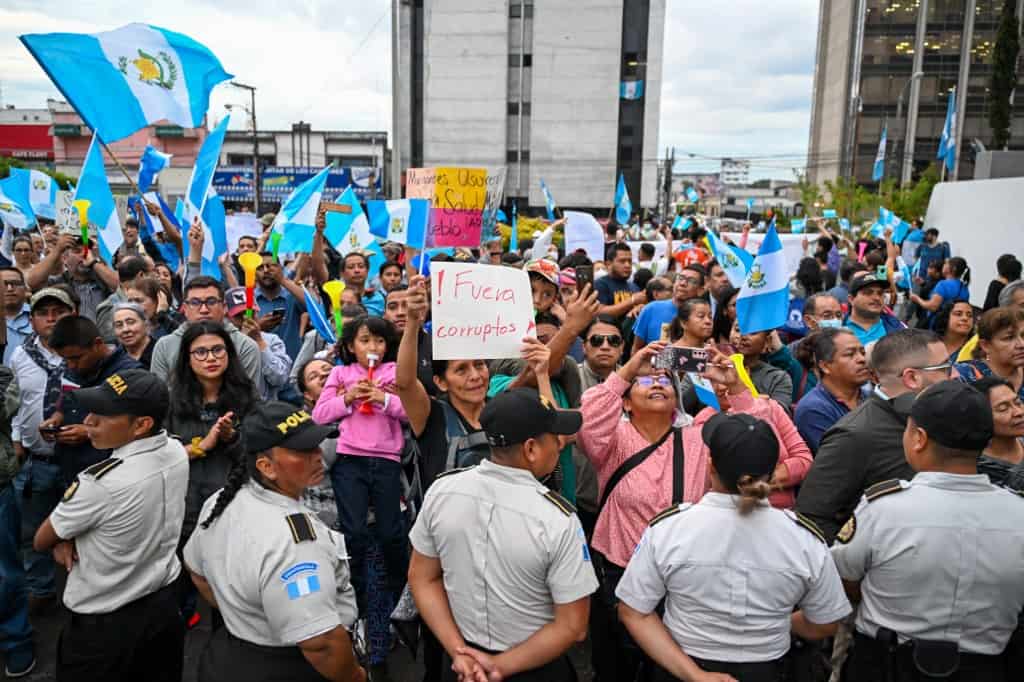Guatemala’s prosecutor’s office requested on Wednesday the removal of immunity from the electoral magistrates for alleged irregularities in the acquisition of a computer system for the presidential elections this year, which the social democrat Bernardo Arévalo won.
The request was filed with the Supreme Court of Justice “for the possible commission of the crimes of fraud, breach of duties and abuse of authority” by the four incumbent magistrates and an equal number of alternates, prosecutor’s office spokesperson Juan Luis Pantaleón told journalists.
The spokesperson said the legal action is being carried out following a complaint filed on June 29 against the full panel of magistrates of the Supreme Electoral Tribunal (TSE), as well as the entity’s computer department.
The prosecutor’s office, headed by Attorney General Consuelo Porras, has undertaken a crusade against the TSE and Arévalo’s Semilla political party for alleged irregularities in the registration of members for its founding in 2017.
On September 14, President-elect Arévalo asked for the removal of immunity from Porras and Judge Fredy Orellana, whom he accuses of orchestrating a “coup d’état” and preventing him from taking office on January 14 to replace right-winger Alejandro Giammattei.
The legal persecution against Semilla began after Arévalo came in second in the June 25 elections and went to a runoff, where he defeated former first lady Sandra Torres on August 20.
The alleged irregularities
Pantaleón detailed that the magistrates may have incurred possible irregularities by signing an administrative contract for the computer program for the Transmission of Preliminary Electoral Results (TREP).
The TREP was acquired for about $19.3 million from a local company and served to count the voting certificates that were entered into the system and expedite the preliminary results of the elections.
According to the prosecutor’s office, the high officials committed fraud against the State by acquiring a service about $4.5 million more expensive than the one offered by another company.
TSE President Irma Palencia rejected the accusation on Wednesday night at a press conference and argued that the winning firm “was more efficient, robust, offered us alternative plans and the other did not have the degree of maturity we were looking for.”
Likewise, she expressed her concern about the persecution undertaken by the prosecutor’s office, after announcing that they are analyzing “what the legal position is that we are going to take in the face of this, although of course it is a political trial and we have that very clear.”
According to the prosecutor’s office, among the illegalities is also the fact that the company that provided the software recommended to the entity that acted as supervisor “usurping public functions and duties inherent to the Supreme Electoral Tribunal, such as the summation and transmission of votes.”
That action “is illegal because there is a conflict of interest, since supervision cannot be carried out by an entity that the provider itself recommends,” he insisted.
However, Palencia assured that the results offered by the TREP were not binding and the vote count is the responsibility of the voting tables made up of citizens and party poll watchers.






